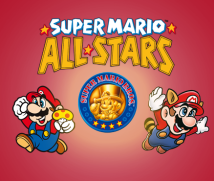11. It’s Been Easy Making Mario?
Whew! We’ve talked enough today to fill up a whole book!
(laughs)
We really have! (laughs)
I feel like I haven’t said anything terribly unique, but some of it shows fresh insight as well. We haven’t touched directly on the Mario series, but I think everything we’ve talked about is strongly related to why we were able to create those games.
Much of the conversation has been relevant to the Mario games. If you were to keep that in mind and read back through our conversation, I’m sure you’d find lots of places to make you think, “Oh, so that’s how he makes Mario games!”
(laughs)
Looking back at the last 25 years, there have been a lot of Mario games. But when you were making Super Mario Bros., you weren’t thinking about Mario 25 at all, right? 5 Super Mario Bros. 2: The second Super Mario action game released for the Family ComputerDisk System on June 3, 1986. This game is known as Super Mario Bros.: The Lost Levels in Europe.
Right.
That’s why I think it’s lasted so long. In other words, you had no idea about the next Mario game. I think that is a nifty trick. If you had made each game with a roadmap, thinking about what you’d do with the next game and the next one after that, I don’t think it would have lasted like this. It wouldn’t have turned out like this if you had surveyed players, asked what was wanted in the next Mario game and made those desired elements the core of the next game.
I suppose not. I’m always asked how I make the Mario series, but it’s like we’re thinking the games up as we go. I can only answer that each time is different, so I don’t know.
I see.
Looking back, what’s been easy about making the Mario games is that they could naturally change along with the progress of technology. For example, when you make movies you have new methods at your disposal as special effects technology advances. In the same way, as technology advances, the Mario games change, too. On the contrary, books have basically always been made the same way. If it had been necessary to keep making Mario games in the same way like that, we couldn’t have done it. In that way, making the Mario games has been easy.
Surely not easy! (laughs)
Yeah, really. (laughs)

Well, I think that’s because of your work method.
But the technology changes, so we just have to adjust to that. And as technology changes, so does what you want to do. If it weren’t for that, I don’t think I could have stuck with it this far.
Hmm, I wonder what everyone will think when they hear that from the person who has made their Mario games for the last 25 years.
Umm… (laughs)
So it’s easy?
Yeah, it’s easy.
Well that’s just…great!
(laughs)
That’s good. It’s a different field, but take people who’re good at singing. No matter what people say, I can’t help but think, “Maybe it’s easy for them.”
Yeah. When there are several possibilities, I choose the easy one. For quite some time, I have viewed Professor Rubik, who created the Rubik’s Cube, as a sort of rival. I’ve always thought it would be cool to create something like a Rubik’s Cube. I’ve told lots of people about that.
Uh-huh…
For 20 years, I’ve always thought that Rubik’s Cubes are great and I want to make something like them, but I still haven’t tried to. So I must be taking it easy. Regardless of whether I can or cannot do it, I could at least give it a shot, but I never have.
What interesting logic. (laughs)
Similarly, I’ve always said that I wanted to become a manga artist. One time, I suddenly thought I could still do it if I wanted. So I declared to Tezuka-san that I would try drawing a simple four-frame comic strip. I drew a rough layout for one and showed it to him, and he said it was good, but I haven’t done anything since. (laughs) Really, making Mario games is easier.
I think that means you’ve built up in yourself the ability to naturally make Mario games well.
Yeah, maybe so.
The way the cartilage in a baseball pitcher’s elbow changes, you have changed as a person while making Mario and other games. So when you and someone else are walking along a path together, you - unlike that other person - are walking along that path as the person who makes Mario games. I mean, even when you’re watching Ge Ge Ge no Nyobo, you’re stockpiling materials for a Mario game.
When I’m watching Ge Ge Ge no Nyobo, my thoughts about the history of manga rentals and video games overlap. I think, “Ooh, they’re similar!”
(laughs)
